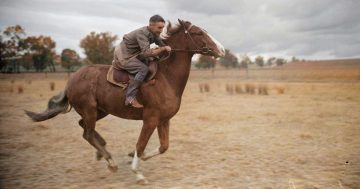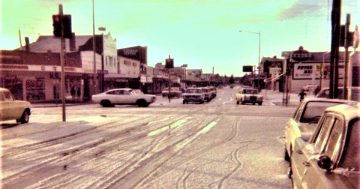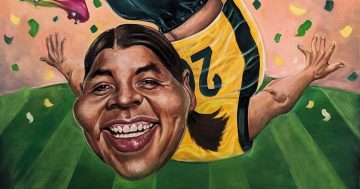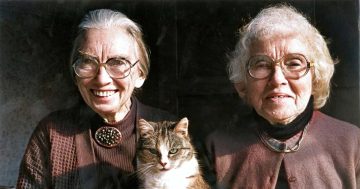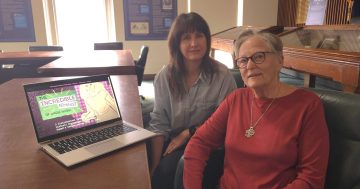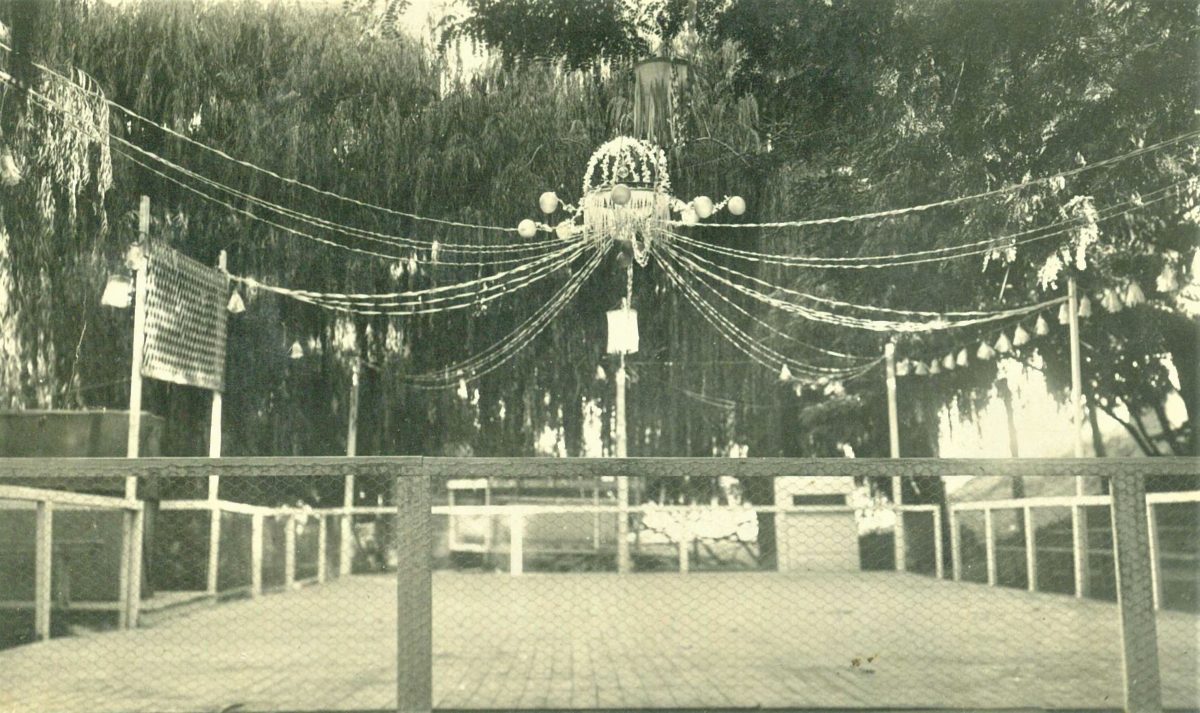
The Dixieland Dancefloor. Photo: Museum of the Riverina.
This week, the Museum of the Riverina team take us back to the 1930s to one of Wagga’s most popular night spots.
Dixieland was a dance floor nestled under the willow trees on the river bank at the end of Little Gurwood Street – now Sturt Street. It is said that the floor originally floated on 40-gallon drums, but these had to be replaced by brick piers when the original floor was washed away by floodwaters.
At night, the floor was lit by electricity with coloured fairy lights strung above the dance floor.
It opened in 1921, and people came from all over the district to dance there. It became a commercial venue in 1923, directed and maintained by the Wagga Brass Band.
The Australian cricket team rang in the New Year (1922-23) at Dixieland and one of the team, Arthur Mailey, had such a good time that he wrote the following in the Sydney newspaper The Sun:
“The nightclubs of Europe and America could not hold a candle to this place … the ripples, the willows, the lights, the hop beer, the stars, the pleasant-faced man at the gate, and the horse outside seem to be sections of a wonderful combination that harmonise and blend, giving birth to an atmosphere that is healthy, sincere, and natural.”
Admission was by a silver coin – usually sixpence – paid at the paling gate entrance, and it cost threepence a dance.
Old-time dance music like waltzes and foxtrots were played by the Wagga Brass Band, the Dixieland Melody Masters, or the Riverina Revellers.
Iconic Australian actor Billy Kerr grew up in Wagga and performed there as a child and in 1931 it was the scene of a remarkable performance.
At 8 o’clock on the evening of Saturday 16 May, endurance dancer Mr Frank Speerin attempted to break his own non-stop dancing record.
Under the supervision of the Wagga Brass Band and a committee of citizens, Frank danced his way into the history books, clocking up 170 hours of non-stop dancing!
That week had been one for endurance records being broken in the town. A few days earlier Wally McColl had broken the Australian rail-sitting record by sitting on a rail for 98 hours, and Wagga girl Eileen Lugton established a local record by dancing for 50 hours.
Dixieland, known throughout the jazz age as ‘Wagga’s Premier Rendezvous of Joy’ and the ‘Brightest Show in Town’ closed its doors for good in 1934, due to ongoing problems with flooding, and changing times.
Image and information supplied by Museum of the Riverina curator Michelle Maddison.








